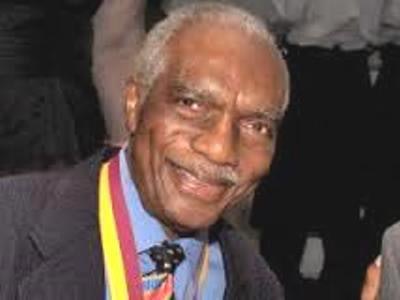 Walter Leonard 1929-2015
Walter Leonard 1929-2015In a contemporary era where issues of race, inclusion and diversity are playing out in a highly contentious legal, campus-based and political environment, most leaders long for the wisdom, insight and courage that characterized Walter Leonard’s career in higher education and beyond.
Leonard, who died Tuesday at age 86, was one of the pioneering education leaders who successfully paved the way for Blacks to hold leadership roles at both elite historically Black and White institutions.
Today’s leaders such as Ruth Simmons, who held leadership roles at Brown and Princeton universities, and Ron Mason, who held leadership roles at Tulane and Jackson State universities, would agree that Leonard’s accomplishments opened doors of opportunity that would have otherwise have been closed. Contrary to popular thinking, Leonard showed that you could successfully hold leadership roles in both types of institutions despite the huge gap in resources. It was not an either/or but a both/and proposition for Leonard.
Early on in the push to move Harvard University from merely being desegregated to being truly inclusive, it was Leonard and then-Harvard President Derek Bok that devised a Harvard affirmative action plan in 1971. Though he never held the title of chief diversity officer or similar titles, he effectively navigated the Harvard bureaucracy to lay the foundation for their current enviable diversity record.
The Harvard Plan, as it was called, laid out the mechanisms that elite colleges needed to aggressively increase the enrollment of Black students and the employment of faculty and staff. The plan became a model for the one used by the University of California and was litigated all the way to the Supreme Court in the landmark Bakke decision. Though the Supreme Court approved that type of plan, it reverberates even today as the court decides the Fisher v. University of Texas at Austin case.
Today, as historically Black colleges struggle with issues of leadership turnover and funding, they would do well to reflect on the extraordinary self-sacrificing act Leonard did on behalf of Fisk University. In 1976, he left Harvard to become president of Fisk. In 1978, he leveraged his personal life insurance policy as collateral to keep the venerable school from closing. During his seven-year tenure he managed to raise more than $12 million.
After Fisk, Leonard went on to many other higher education leadership roles, including distinguished senior scholar at Howard, executive assistant to the governor of the University of the Virgin Islands and national executive director of Cities in Schools (Communities in Schools). He also lectured and taught law at Howard, the University of Virginia, the University of Pennsylvania, Harvard, the University of California, Davis and the University of Maryland, College Park. He also served on the board and consulted for the U.S. State Department and the United Negro College Fund (UNCF). He was a prolific author of scholarly articles in the fields of law, education and the challenges of Black students on White campuses including student protest movements.















